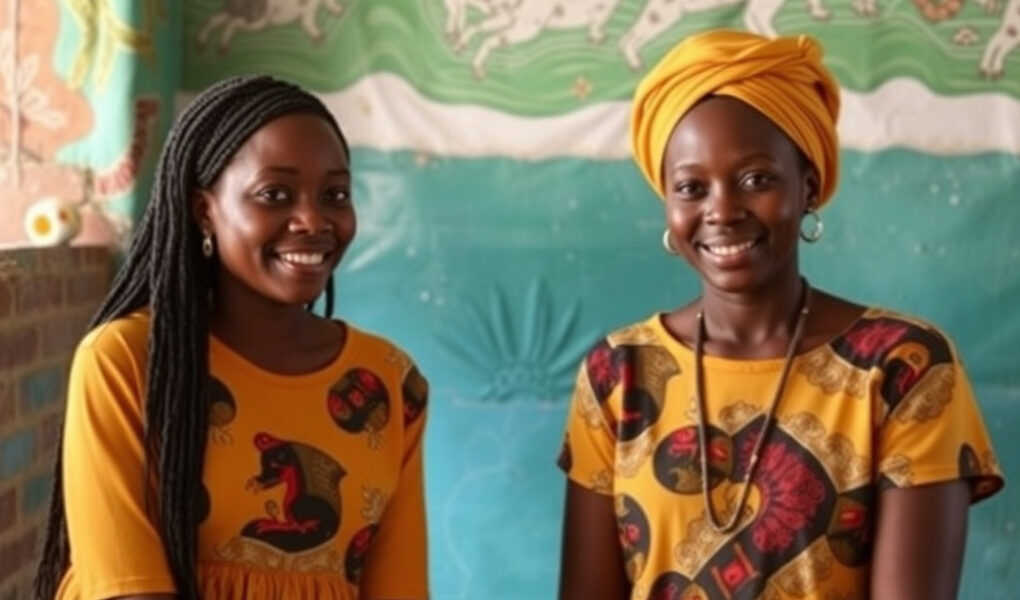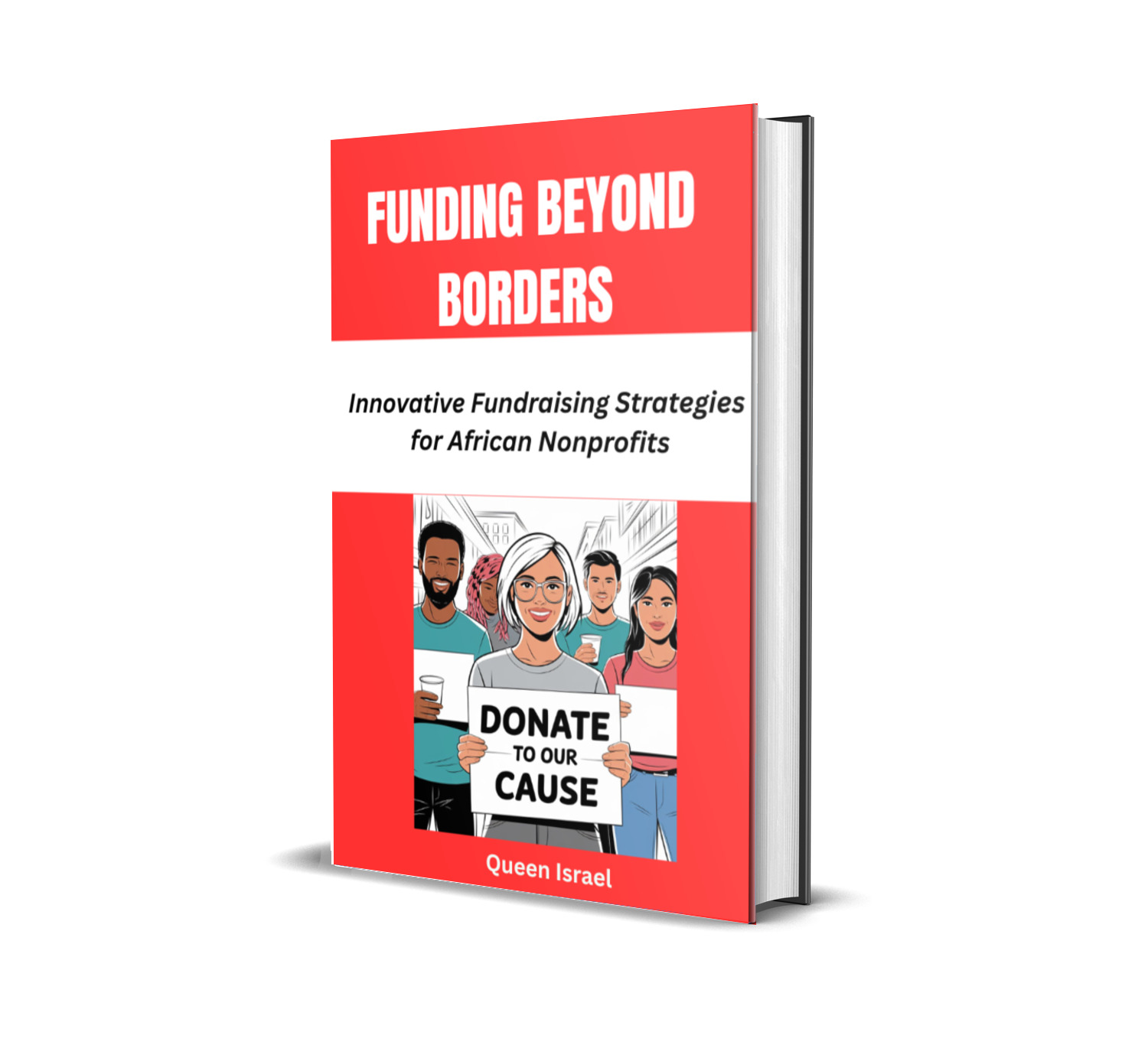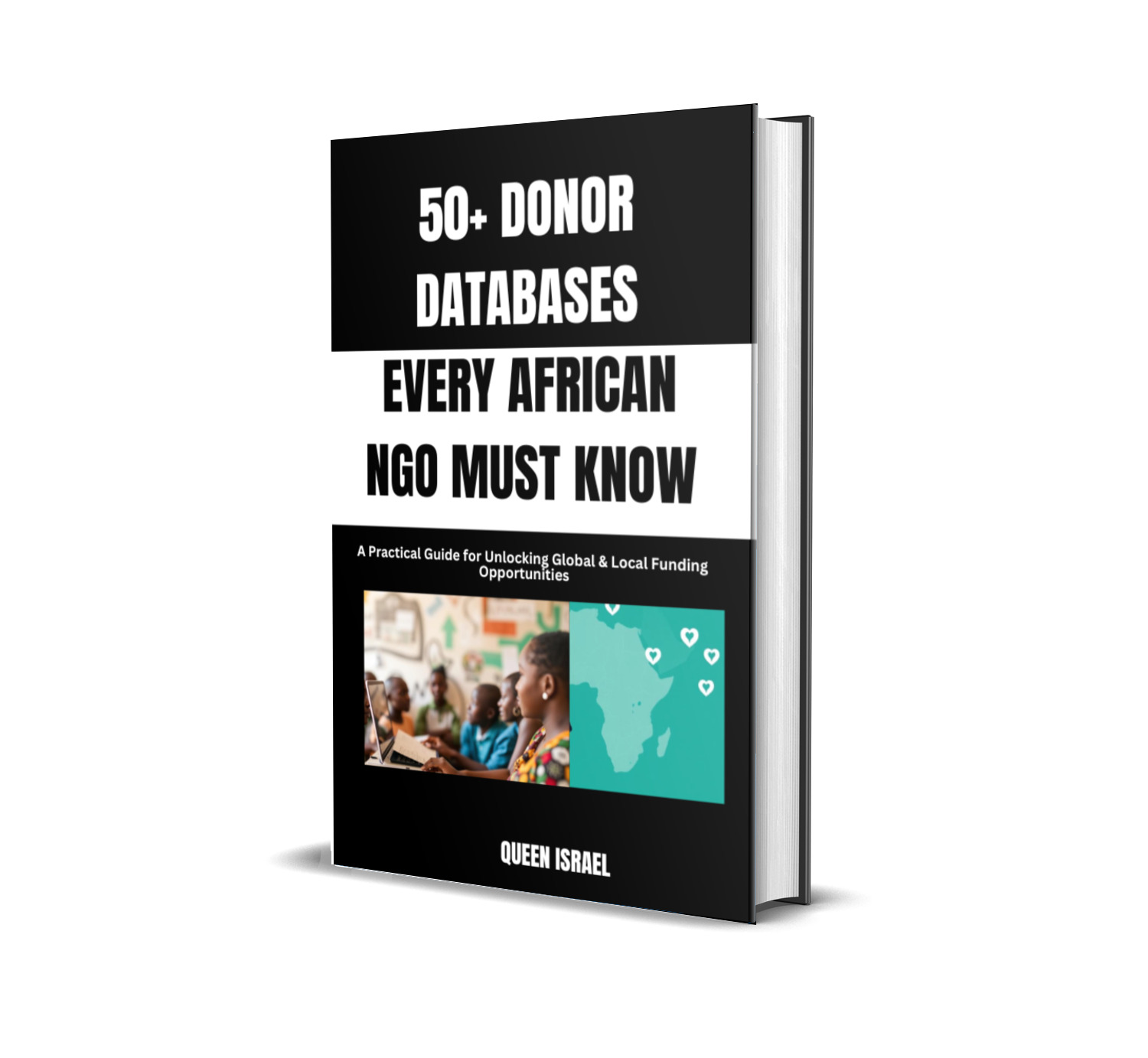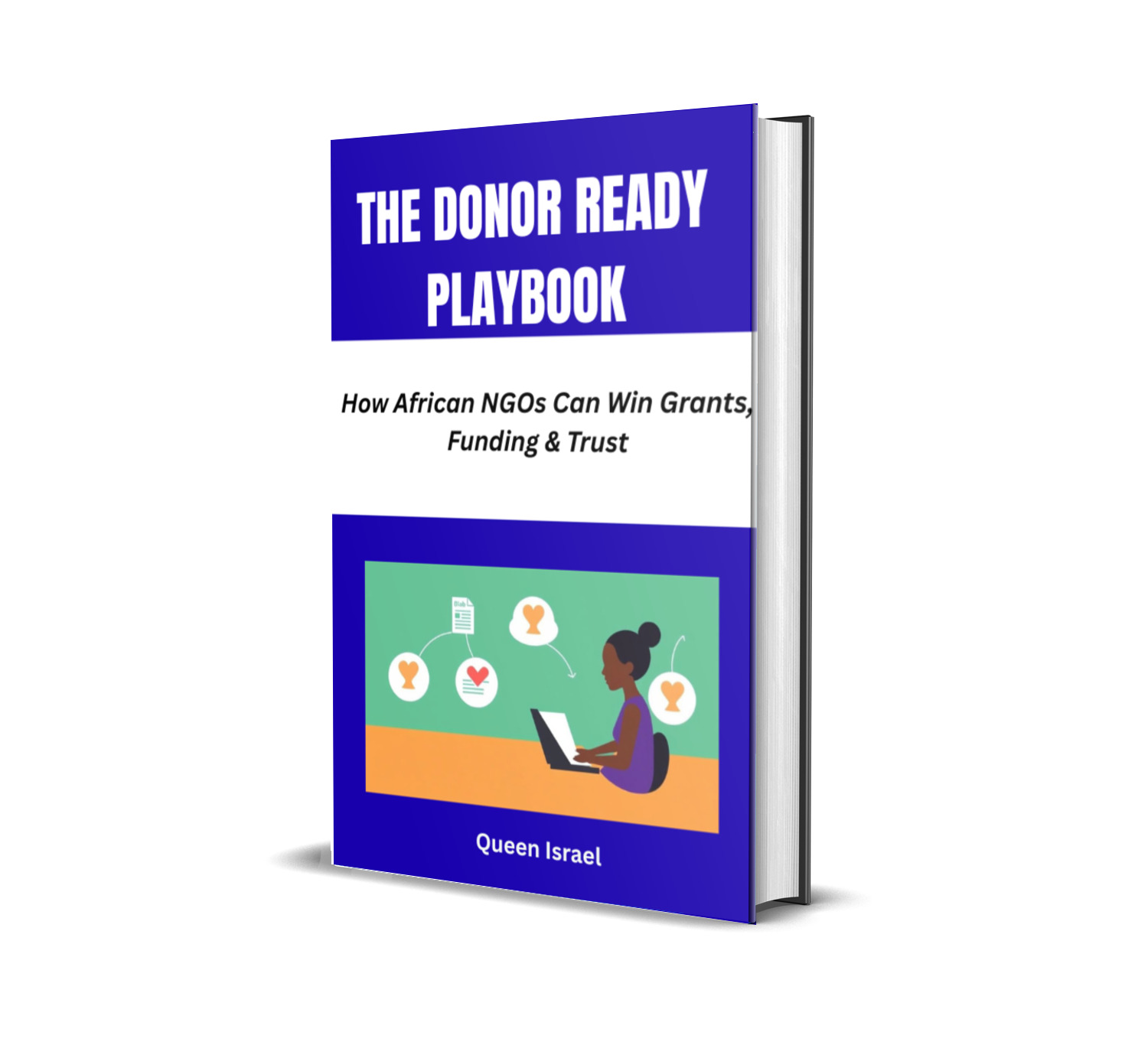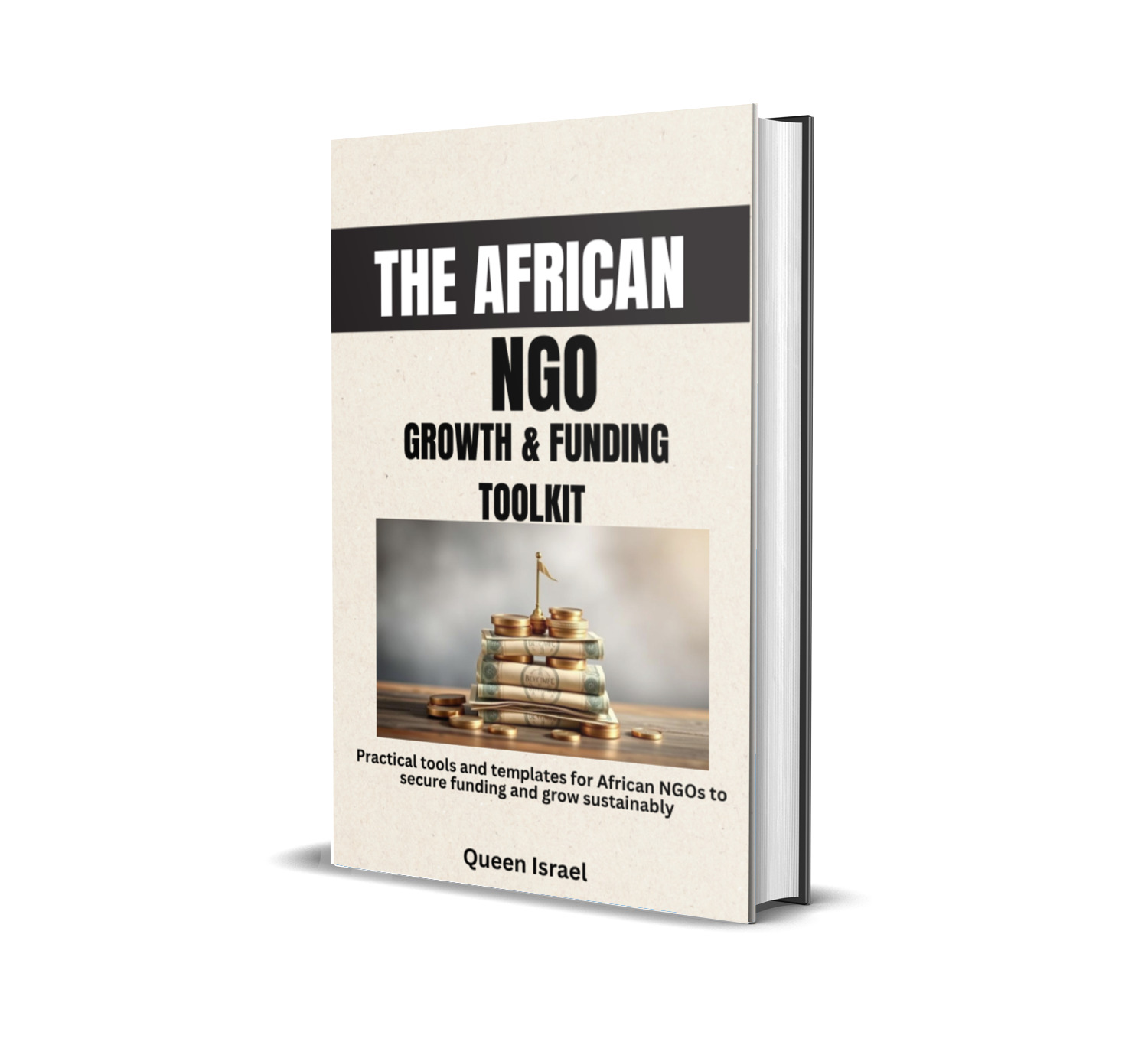Mental health is finally getting the attention it deserves across Africa—but not enough organizations are ready to grab the opportunities opening up.
For years, NGOs have focused heavily on health, education, and poverty programs (which are all critical), but mental health has often been sidelined—seen as a “luxury issue” or something only urban elites worry about.
Now the tide is turning.
Global donors, African philanthropists, and even governments are waking up to the fact that you can’t build thriving communities without mentally healthy people. From youth depression to trauma healing for refugees, to community-based counseling programs, funders are actively looking for NGOs tackling mental health at the grassroots.
But here’s the challenge:
👉 Many African NGOs don’t know how to position their projects to attract these grants.
👉 Others don’t know where to find the right funders.
👉 And some struggle to communicate why their mental health work matters in a crowded funding space.
If that sounds like your organization, this guide is for you.
By the end of this article, you’ll know exactly how to secure mental health grants for your African NGO—step by step.
Let’s dive in.
Step 1: Understand Why Mental Health Funding Is Rising (and How You Can Align)
The first step to winning any grant is understanding what funders care about right now.
Mental health is no longer viewed as a “standalone” issue. Funders now see it as a cross-cutting theme that affects everything—from education outcomes to economic productivity, from gender-based violence recovery to climate resilience.
Here’s what’s driving the funding boom:
- Post-COVID trauma and burnout — Communities across Africa are still healing emotionally.
- Youth mental health crisis — Depression, addiction, and suicide rates among young people are rising, especially in urban and post-conflict areas.
- Link between mental health and development — The World Bank and WHO now push for “psychosocial well-being” as part of sustainable development.
- Tech-based mental health solutions — Funders love innovation: mobile apps, teletherapy, peer support networks.
- Community-based healing — Grassroots NGOs that blend traditional practices with modern therapy models are getting noticed.
💡 Action Step:
Frame your mental health project as part of a larger development story. For example:
“Our mental health program empowers unemployed youth to build emotional resilience and re-enter the job market.”
That’s not just mental health—it’s economic empowerment with a psychosocial foundation.
Step 2: Know Where to Find Mental Health Funders
Now let’s talk about where the money actually is.
You don’t need to spend hours scrolling through random websites. Start with these proven funding sources that prioritize mental health in Africa:
1. The Wellcome Trust (UK)
One of the largest funders of mental health research and innovation globally. They support projects that explore new models of mental health support—especially community-based and culturally relevant ones.
🪄 Tip: Partner with local universities or research institutions to strengthen your proposal.
2. Grand Challenges Canada – Global Mental Health
They fund innovative solutions that promote mental well-being in low- and middle-income countries. African projects—especially those led by local NGOs—are a priority.
🪄 Tip: Focus on innovation. Use storytelling to show how your approach is new, creative, or scalable.
3. Open Society Foundations (OSF)
OSF funds advocacy, mental health justice, and trauma recovery—especially among marginalized communities, refugees, and survivors of conflict.
🪄 Tip: If your work intersects with human rights or social justice, OSF is a strong fit.
4. WHO Africa / AFRO Grants
They often have regional calls for mental health integration into primary healthcare.
🪄 Tip: Align your project with national health priorities or mental health strategies.
5. Private Foundations & Faith-Based Funders
Foundations like The Conrad N. Hilton Foundation or Templeton Foundation support projects linking spirituality, resilience, and well-being.
🪄 Tip: If you integrate faith or community healing in your work, highlight this clearly—it’s a differentiator.
Step 3: Build a Strong Case for Support (Even If You’re Small)
Many African NGOs get rejected not because their idea isn’t good—but because their proposal doesn’t build a strong case for why the project matters.
Here’s how to fix that.
1. Start with the Story
Share a real story from your community. Something like:
“When Amina lost her husband during the pandemic, she didn’t just lose income—she lost hope. Our team visited her home weekly, providing counseling and connection. Today, she runs a small business and mentors other widows.”
Stories humanize your project. Funders fund people, not just data.
2. Back It Up with Data
Combine storytelling with statistics. For instance:
“Over 25% of youth in our region report symptoms of depression, yet only 1 in 10 can access support.”
That shows the problem and the opportunity for impact.
3. Highlight Your Uniqueness
Ask: What makes our approach special?
Maybe you use local languages in therapy sessions. Maybe your peer counseling model is led by youth. Maybe you partner with churches or mosques.
Those details make your project stand out.
Step 4: Craft a Winning Proposal (Funders Love Simplicity and Clarity)
Don’t overcomplicate your proposal. Funders appreciate clear, logical thinking.
Here’s a simple formula that works:
A. Problem Statement:
Describe the issue clearly and locally.
“In western Kenya, suicide among young men aged 18–30 has increased by 40% in the last three years due to unemployment and trauma.”
B. Solution:
Explain what you’ll do, who you’ll help, and how.
“We’ll train 50 peer mentors to deliver community-based counseling and connect participants to livelihood support programs.”
C. Impact:
What changes will happen because of your project?
“Within 12 months, 500 youth will have improved coping skills, reduced stress, and renewed hope.”
D. Sustainability:
Show how you’ll continue beyond the grant.
“We’ll integrate our peer support program into local schools and community centers.”
E. Budget:
Keep it realistic and aligned with your goals. Don’t inflate costs—funders can tell.
💡 Pro Tip:
Attach short testimonies, photos, or video links if allowed. Visuals bring your story to life and help reviewers remember your project.
Step 5: Build Relationships Before You Apply
This is one of the biggest secrets of successful grant writing—and yet, most NGOs skip it.
Funders don’t just want to read about you; they want to connect with you.
Here’s how to do it:
- Engage early: Email the program officer or grant manager before applying. Ask clarifying questions like, “Does our community-based model fit your funding priorities?”
- Attend webinars: Many funders hold info sessions—show up, ask good questions, and note what they emphasize.
- Follow them on social media: Comment on posts, share insights, and become visible.
- Network through partnerships: Collaborate with larger NGOs or local governments—they often share insights about active grants.
💬 Example:
An NGO in Nigeria once built a relationship with a funder six months before applying. When they finally submitted their proposal, the funder already knew their work. Guess what? They got funded on the first try.
Relationships matter.
Step 6: Strengthen Capacity and Credibility
Before you hit “submit,” make sure your organization looks credible. Funders do background checks—both formal and informal.
Here’s what to get right:
- Clear mission statement and governance.
- Updated website or social media.
- Transparent finances (even basic spreadsheets).
- Success stories from past programs.
- Letters of support from community leaders or partners.
If you’re new, don’t panic. Even small NGOs can show strength by highlighting community trust, passionate volunteers, and early results.
Step 7: Think Beyond One Grant—Build a Funding Ecosystem
Winning one grant is great. But real sustainability comes when you build a funding ecosystem.
That means diversifying income:
- Apply for small community grants first (e.g., $5,000–$10,000).
- Use results from those to apply for larger multi-year grants.
- Combine grants + crowdfunding + corporate CSR + training income.
Over time, your organization moves from “always chasing money” to “strategically attracting funding.”
💬 Example:
A mental health NGO in Uganda started with a $7,000 youth resilience grant. They documented every success—photos, quotes, outcomes—and used that to win a $150,000 follow-up grant from a UK foundation.
That’s how you build momentum.
Step 8: Master the Art of Follow-Up and Reporting
Winning the grant is only the beginning. How you manage and report determines whether funders will support you again.
Here’s how to stand out as a “favorite grantee”:
- Send quarterly updates with short stories and photos.
- Track data: number of sessions, people reached, impact results.
- Share lessons learned—not just successes.
- Thank the funder publicly (if allowed).
When you treat funders like partners, they’ll treat you like a long-term ally.
Final Thoughts: Africa’s Mental Health Revolution Needs You
We are living in a powerful moment for mental health advocacy across Africa. The world is finally recognizing what our communities have known for centuries: healing is both personal and communal.
African NGOs are in a unique position to lead this revolution—bringing together cultural wisdom, faith, innovation, and compassion.
But passion alone isn’t enough. To make a real difference, you need strategy, funding literacy, and partnership.
And that’s where we come in.
Join the Movement: Become a Founding Member of Nonprofit Navigator Africa
If you found this guide helpful, imagine having monthly trainings, personalized coaching, and funding alerts designed specifically for African NGOs like yours.
Join Nonprofit Navigator Africa — our community of changemakers mastering the art of funding African impact stories.
As a Founding Member, you’ll get:
✅ Exclusive access to donor databases and grant alerts for Africa.
✅ Proposal templates and strategy guides for health, education, and mental health projects.
✅ Monthly live sessions on grant writing and fundraising.
✅ Private networking community with other NGO leaders across the continent.
💡 Don’t keep waiting for “someday.”
The best time to position your NGO for funding is now.
👉 Join Nonprofit Navigator Africa today and learn how to turn your vision into a fully funded mission.
